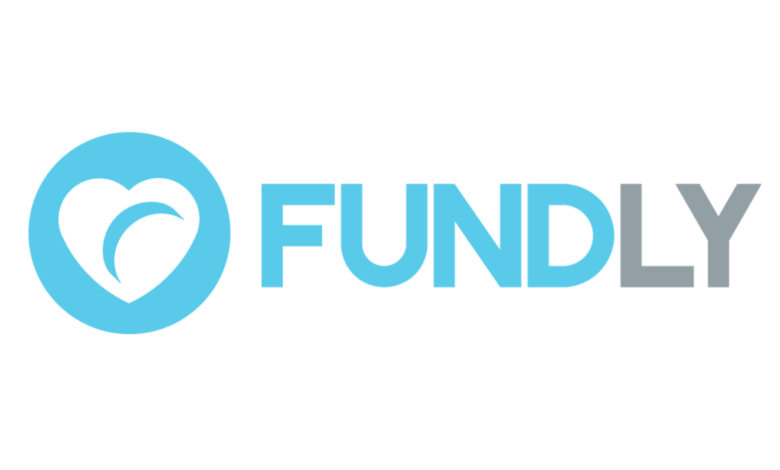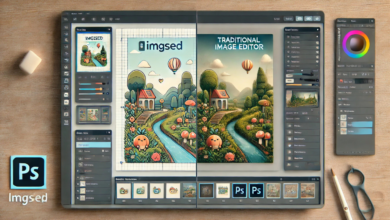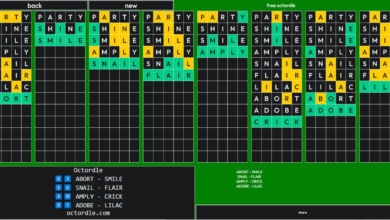Fundly vs. Other Crowdfunding Platforms: What You Need to Know

Crowdfunding has become an increasingly popular way for individuals and organizations to raise funds for personal causes, nonprofit initiatives, creative projects, and business ventures. The digital landscape has provided numerous platforms to facilitate this process, but with so many options available, it can be challenging to determine which one best suits your needs. Among the most well-known crowdfunding platforms is Fundly, which offers a user-friendly fundraising experience. However, before committing to any crowdfunding platform, comparing Fundly with other options is crucial.
This article will explore how Fundly compares to other popular crowdfunding platforms, including GoFundMe, Kickstarter, Indiegogo, and Patreon. We’ll break down the features, fees, ease of use, and other important factors to help you decide your fundraising goals.
What is Fundly?
Fundly is a crowdfunding platform that specializes in personal and nonprofit campaigns. Founded in 2010, it has become a popular choice for individuals looking to raise money for causes such as medical expenses, memorials, education, community projects, and more. Fundly’s platform is designed to be easy to use, with streamlined campaign creation, social media sharing, and donation tracking.
How Fundly Works
Fundly allows users to create campaigns for various reasons, including personal, nonprofit, and charitable causes. The platform enables users to set a fundraising goal, provide a detailed cause description, and share the campaign through social media and email. Donors can then contribute through the platform, and Fundly charges a percentage-based fee on the total amount raised.
One of Fundly’s standout features is its social sharing tools, which allow users to share their campaigns directly on Facebook, Twitter, and other platforms. This helps to amplify the campaign’s reach and encourage more donations. Fundly also supports donor engagement through custom messaging, allowing campaign creators to update supporters on progress and milestones.
Fundly vs. Other Crowdfunding Platforms
Let’s dive into how Fundly compares to other crowdfunding platforms in key areas, including ease of use, fees, features, and support options.
Fundly vs. GoFundMe
GoFundMe is one of the largest and most well-known crowdfunding platforms, especially for personal causes. While Fundly also caters to personal fundraising, GoFundMe offers a slightly simpler approach with no upfront fees for personal fundraising campaigns.
- Fees: GoFundMe doesn’t charge a platform fee for personal causes, but it does charge a processing fee (2.9% + $0.30 per donation). Fundly, on the other hand, charges a 4.9% platform fee and a processing fee (2.9% + $0.30 per donation).
- Campaign Features: Both platforms allow users to create compelling campaigns with images and videos and offer social sharing features to help promote them. However, due to its widespread recognition, GoFundMe has a more extensive donor base and a higher chance of viral reach.
- Fundraising Purpose: GoFundMe is often used for personal and emergency causes, such as medical expenses, while Fundly is commonly used for personal causes and nonprofit initiatives.
- Support and Community: GoFundMe has a massive user base and community support and provides 24/7 customer service. Fundly’s customer service is responsive but not as extensive as GoFundMe’s vast network.
Fundly vs. Kickstarter
Kickstarter is one of the top platforms for raising funds for creative projects, including tech innovations, films, books, and music. Unlike Fundly, which is focused on personal and nonprofit campaigns, Kickstarter is strictly for entrepreneurs and creators.
- Project Focus: Fundly is ideal for various causes, while Kickstarter focuses primarily on projects with clear goals and deliverables. On Kickstarter, you can fund a business idea, product prototype, or other creative endeavours.
- Rewards: Kickstarter campaigns often offer rewards to backers based on different contribution levels, which is a unique feature compared to Fundly. Fundly does not generally offer rewards for donations, though campaign creators can express gratitude or offer updates to donors.
- Fees: Kickstarter charges a 5% fee on funds raised, plus payment processing fees (3% + $0.20 per transaction). This is slightly higher than Fundly’s fee structure, which includes a 4.9% platform fee and the same processing fee.
- Flexibility: Fundly is more flexible regarding the type of campaigns you can create, while Kickstarter is more restrictive and focused on creative projects that promise specific deliverables.
Fundly vs. Indiegogo
Indiegogo is another crowdfunding platform popular for both creative projects and business ventures. It offers more flexibility than Kickstarter regarding the types of campaigns allowed, including personal and entrepreneurial projects.
- Flexibility: Indiegogo offers flexible funding (where you keep what you raise, even if you don’t reach your goal) and fixed financing (where you only own the funds if you meet your goal), providing more options for campaign creators. Fundly only offers the “keep what you raise” model, which may not suit everyone.
- Fees: Indiegogo charges a 5% fee on all funds raised, with payment processing fees of 3% + $0.30 per transaction. Fundly’s fee is slightly lower at 4.9%, but the processing fees are comparable.
- Campaign Features: Both platforms allow you to create detailed campaigns with media, updates, and social sharing options. However, Indiegogo offers additional features for business-related campaigns, such as the option to pre-sell products.
Fundly vs. Patreon
Patreon is a unique crowdfunding platform that supports ongoing, subscription-based donations for creators. Unlike Fundly, which focuses on one-time donations for specific campaigns, Patreon is designed for creators who need consistent support for their work over time.
- Fundraising Model: Fundly is great for one-time projects, while Patreon is geared towards creators who want recurring contributions from their audience. This makes Patreon ideal for content creators, artists, musicians, and others working on ongoing projects.
- Fees: Patreon takes a percentage of earnings based on the tier (5% to 12% depending on the plan), and payment processing fees also apply. Fundly charges a 4.9% platform fee and processing fees for every transaction.
- Support and Engagement: Patreon is excellent for building a community, offering patrons exclusive content and perks for their monthly support. Fundly is more about raising money for specific causes, making it better for those seeking one-time donations rather than ongoing patronage.
Which Platform is Right for You?
When deciding between Fundly and other crowdfunding platforms, it’s important to consider your specific needs:
- If you’re looking for a personal or nonprofit campaign, Fundly is a solid choice with its easy-to-use features and social sharing tools. However, GoFundMe might be a better choice if you seek a fee-free platform for personal fundraising.
- If you’re running a creative project or business venture, Kickstarter or Indiegogo might be more appropriate because they focus on bringing specific ideas to life.
- For creators seeking ongoing support, Patreon is the best platform for building a steady stream of contributions from your community.
Conclusion
Fundly offers a reliable and user-friendly platform for those looking to raise money for personal and nonprofit causes. Its features, such as social sharing tools and a simple setup process, make it a great choice for many. However, other crowdfunding platforms like GoFundMe, Kickstarter, Indiegogo, and Patreon may be better suited to specific fundraising goals or industries. Before choosing a platform, carefully assess your goals, budget, and the type of campaign you want to run to ensure you select the platform that will best meet your needs.
Frequently Asked Questions (FAQs)
1. What are the fees associated with Fundly? Fundly charges a 4.9% platform fee and a payment processing fee of 2.9% + $0.30 per donation.
2. How does Fundly compare to GoFundMe for personal causes? GoFundMe offers no platform fees for personal causes, but Fundly charges a 4.9% platform fee. Due to its large user base, GoFundMe may have more viral potential, while Fundly offers strong social sharing tools and customization options.
3. Can I offer rewards to my donors on Fundly? Unlike Kickstarter, Fundly does not typically offer rewards for donations. However, you can keep donors engaged with updates and personal messages.
4. Does Fundly support nonprofit campaigns? Yes, Fundly is a great platform for nonprofits, offering tools to raise money for causes such as education, health, and community projects.
5. Can I raise money for business projects on Fundly? While Fundly primarily focuses on personal and nonprofit causes, business projects can be raised on platforms like Kickstarter and Indiegogo, catering more specifically to entrepreneurs and creators.
You May Also Read: https://usabestweekly.com/sumosearch/




